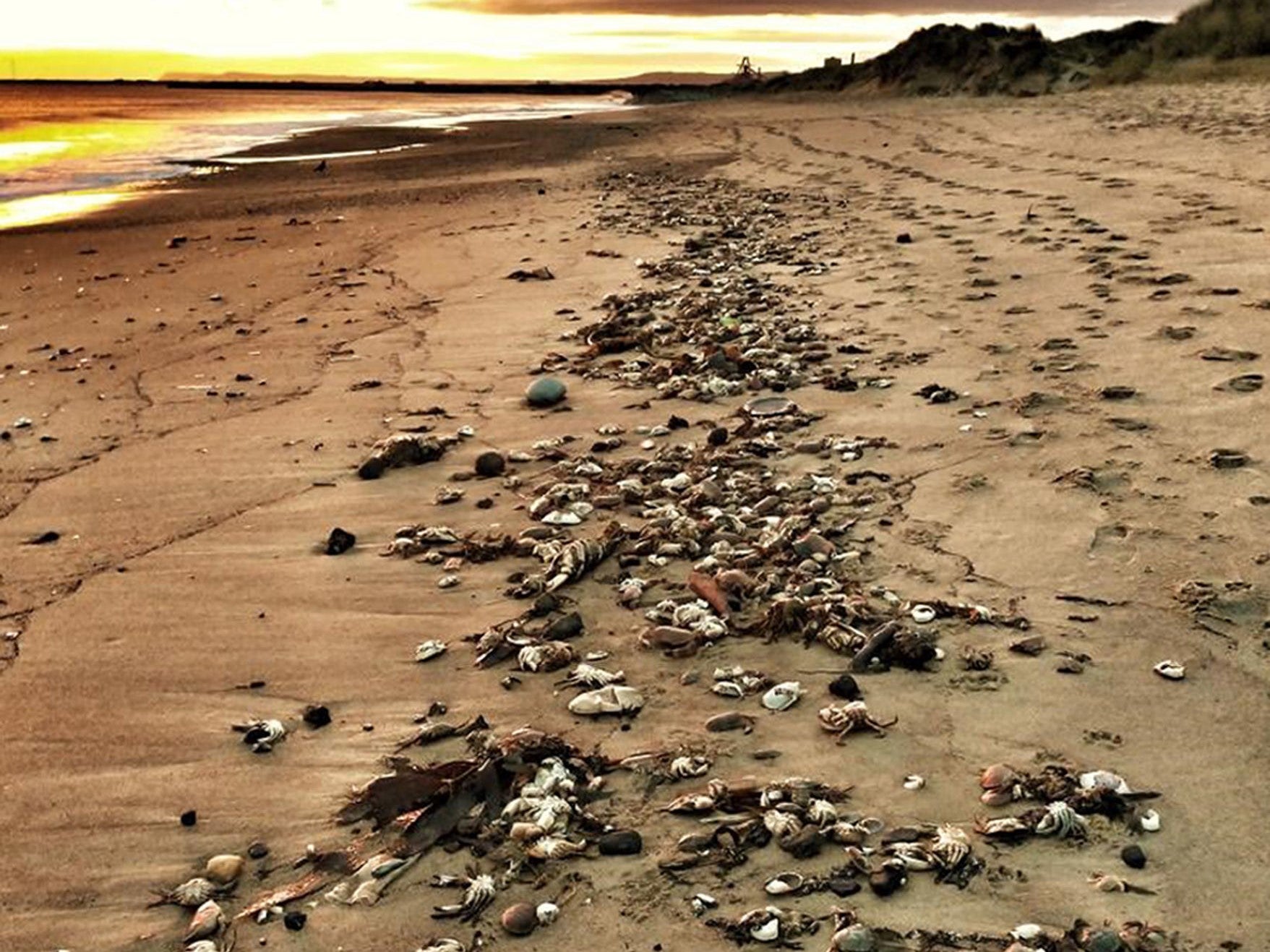‘Apocalyptic’ scenes as thousands of dead crabs and lobsters wash up on northeast England beaches
Disease, pollution and even seismic surveys considered as possible explanations for die-out

Your support helps us to tell the story
From reproductive rights to climate change to Big Tech, The Independent is on the ground when the story is developing. Whether it's investigating the financials of Elon Musk's pro-Trump PAC or producing our latest documentary, 'The A Word', which shines a light on the American women fighting for reproductive rights, we know how important it is to parse out the facts from the messaging.
At such a critical moment in US history, we need reporters on the ground. Your donation allows us to keep sending journalists to speak to both sides of the story.
The Independent is trusted by Americans across the entire political spectrum. And unlike many other quality news outlets, we choose not to lock Americans out of our reporting and analysis with paywalls. We believe quality journalism should be available to everyone, paid for by those who can afford it.
Your support makes all the difference.Investigations are continuing into the phenomenon of thousands of dead crabs and lobsters washing up on beaches up and down the northeast of England.
Countless crustaceans have appeared on sands stretching from Saltburn in North Yorkshire up through Teesside and on to Seaham in County Durham.
So bad are the scenes that one former MP has described them as being “apocalyptic”.
Fatal disease, pollution and even seismic surveys – where the seabed is blasted in a search for offshore oil – are all being considered as possible causes in the Environment Agency’s inquiry.
Samples from the creatures, the water and the coastal sediment have all been sent to government labs for analysis.
“We are working with partners…to investigate why hundreds of dead crabs have washed up along the shore in the Tees Estuary and neighbouring beaches,” said a spokesperson for the agency. “Samples of water, sediment, mussel and crab have been collected and are being sent to our labs for analysis, to consider whether a pollution incident could have contributed to the deaths of the animals. We have also shared samples with the Centre for Environment, Fisheries and Aquaculture Science labs for disease analysis.”
Asked if local pet owners should be worried, a spokesperson with the Department for Environment, Food and Rural Affairs urged “caution” until more was known.
The phenomenon was first reported in early October in Seaton Carew, Redcar and further north in Seaham.
But, while such die-outs are not entirely uncommon – and can be caused by a whole range of issues– the fact that it has continued for such a prolonged period has caused unease.
Local residents have said they have never known anything like it before. One, Sharon Bell, from the seaside village of Marske, told the local Chronicle Live website that some piles of crabs had been “waist deep”. Labour’s former Redcar MP Anna Turley took to Twitter, meanwhile, to ask: “What is going on? This is getting apocalyptic.”
After her successor, the Conservative Jacob Young, raised the situation in parliament earlier this week, he described it as “deeply worrying.”
One theory suggests that the die-off might be related to a newly operational sub-sea power cables laid between Northumberland and western Norway – although a spokesperson for the National Grid deemed it unlikely.
“We are not aware of cables…harming crabs,” they said. “Our cables cover a small footprint of around 10 metres wide and head directly from Blyth across the North Sea to Norway. They are well buried into the seabed and are made up of several layers including steel wires that are unlikely to be broken by wildlife."
The EA’s investigation is expected to offer early conclusions next week.

Join our commenting forum
Join thought-provoking conversations, follow other Independent readers and see their replies
Comments